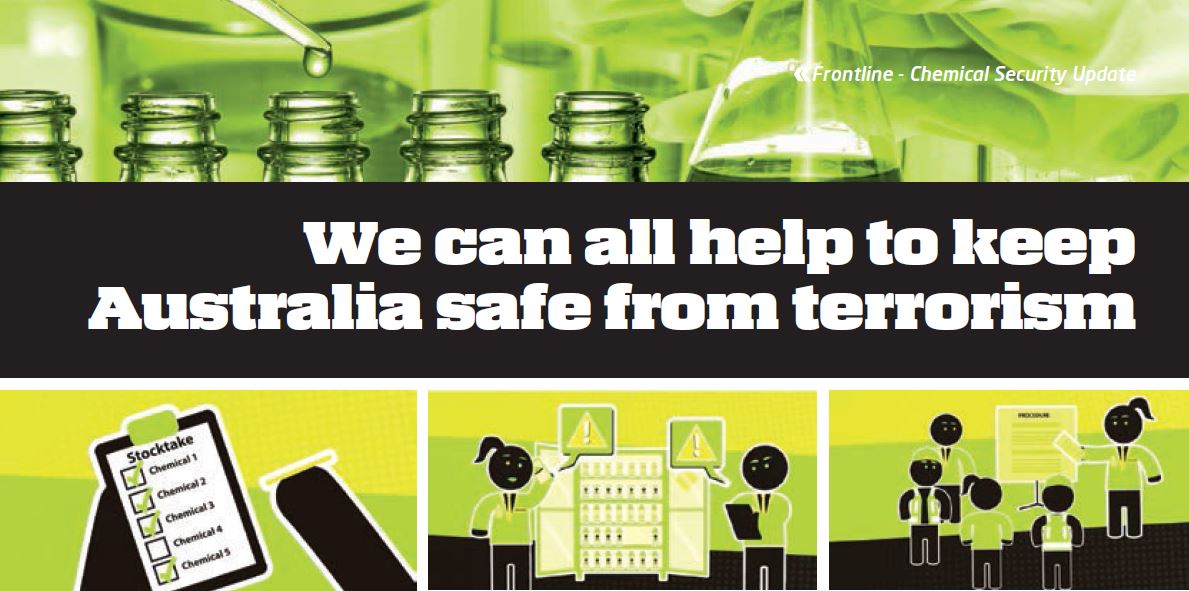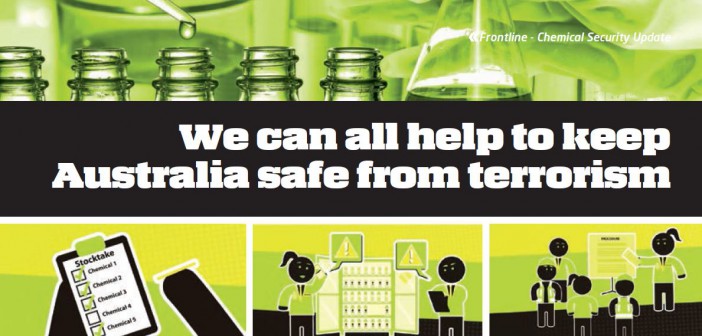
The threat from terrorism in Australia is real. Homemade explosives and toxic weapons can be made from chemicals many of us deal with in our everyday work.
These chemicals have been used in terrorist attacks such as those in Bali, London and Mumbai.
Closer to home, there have been several arrests involving suspected terrorists seeking to purchase common chemicals to use in bomb making.
Currently there are 96 chemicals identified as being of concern. You will find some around your home such as common fertilisers, pool cleaners and bleaches.
We can all contribute to keeping Australia safe and secure. Most importantly, you should trust your intuition. The sort of things you might want to look out for are:
- stolen or missing chemicals, including discrepancies with stock or deliveries
- unusual possession, storage, or dumping of chemicals
- someone purchasing chemicals for which there is no clear purpose
- someone asking unusual questions about the chemicals held on site
- unusual interest in security arrangements at a site or during transport
- suspicious behaviour around places where chemicals are kept.
Remember, these are just some examples of what might be suspicious. You know when something just doesn’t feel right—at work or in your community. Trust your instincts.
A new series of animated videos have been produced to provide guidance on practical and inexpensive measures you can take to help keep chemicals secure in your workplace or property.
The videos are available at: www.nationalsecurity.gov.au/chemicalsecurity/resources
Watch the videos and share them with your colleagues, staff, friends and neighbours.
More information including a full list of the 96 chemicals of security concern and a copy of the code of practice are available from the National Security website: www.nationalsecurity.gov.au/chemicalsecurity
Remember—report anything suspicious involving your chemicals to the National Security Hotline on 1800 1234 00 or hotline@nationalsecurity.gov.au…Click HERE to find out more about this article





